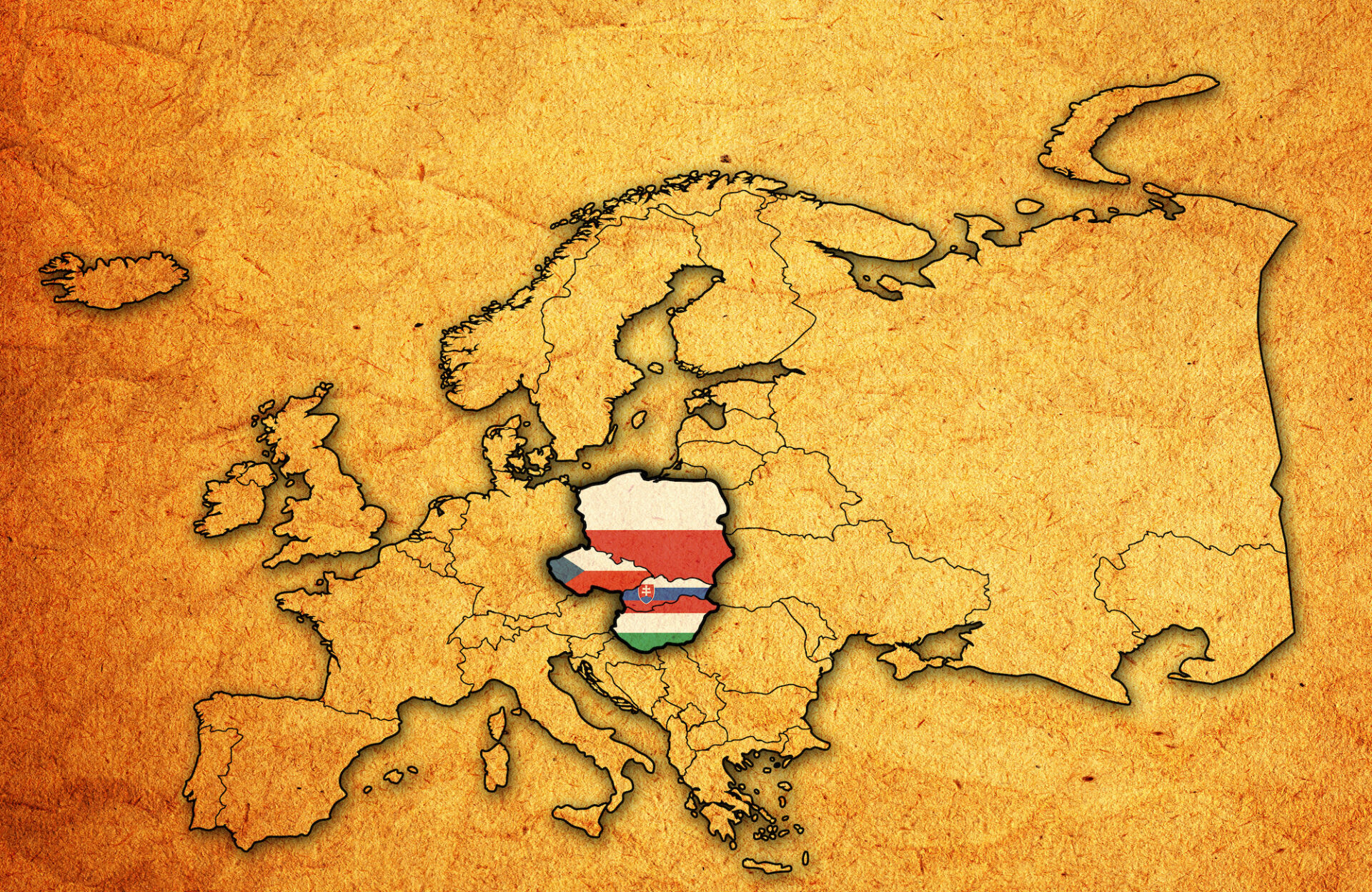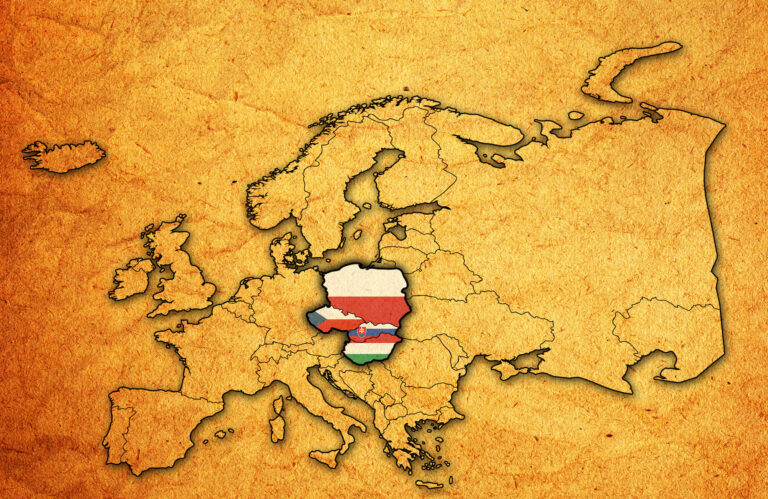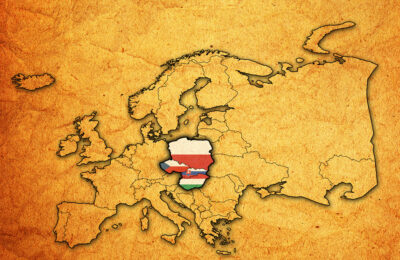Russia’s invasion of Ukraine in late February had major impacts throughout Europe and changed many things on the continent. I would even dare to say that the world as we once knew it is over. Russia, a permanent member of the Security Council of the United Nations, has breached the fundamental principles of international law by not seeking a peaceful resolution to its dispute with Ukraine, by disrespecting Ukraine’s territorial integrity and sovereignty, and by possibly committing genocide.
But the effects of the war are not what the Kremlin and Russian dictator Vladimir Putin were expecting. The European Union member states and their allies immediately united to respond to the Russian aggression.
Many Western countries have provided Ukraine not only with financial support but also with military equipment. They have also supplied humanitarian aid, which was crucial, especially in the first several months of the war, and welcomed refugees with open arms. Since the invasion began, more than five million Ukrainians have fled the country, and another seven million are internally displaced.
The countries of the Visegrad Group (V4) – the Czech Republic, Poland, Slovakia, and Hungary – have been most heavily affected by the influx of refugees. How has the war in Ukraine changed the V4 and relations between its members? How have these countries managed the refugee crisis and what can we expect in the near future?
The V4 before the invasion
There were already tensions within the Visegrad Group even before the Russian invasion. When Czech parliamentary elections were held in autumn 2021, two center-right coalitions won, and Andrej Babiš was ousted from the position of prime minister. Babiš was on good terms with Hungarian Prime Minister Viktor Orbán (Fidesz), who has been criticized for not upholding the basic democratic tenets upon which the V4 and the EU are based.
Even before the new Czech government took power, some of its current members expressed their doubts about the necessity of being a part of the V4. For example, the current minister for European affairs, Mikuláš Bek (STAN), stated that the V4 is overrated and that Czechia should instead shift its focus to Germany and Western Europe.
Doubts about the V4 were also expressed by the current minister for foreign affairs, Jan Lipavský (Pirates), who claimed that despite some of the organization’s benefits, he does not agree with Orbán that there is unity within the four-country bloc.
Such doubts are not surprising. Before Russia’s invasion of Ukraine, both Poland and Hungary were heavily criticized by European Union institutions for deficiencies in democratic institutions such as rule of law, separation of powers, and the protection of minorities.
We can suppose that the newly formed Czech government wanted to distance itself from these two countries, as it sees them to be in some way “toxic.” Moreover, the Czech Republic, too, had several issues with EU institutions due to former prime minister Babiš’s conflicts of interests, so it is logical that the new government is pushing for improved relations with Brussels.
The same cannot be said of Poland and Hungary, two countries with a historically unique relationship that has become more visible in recent years since the current ruling party, Law and Justice (PiS), came to power in Poland.
Both the Hungarian Fidesz and the Polish PiS have had several issues with EU acquis and institutions. This is why no serious measures could have been taken. Without unanimity it was impossible to force Warsaw and Budapest to abide by the law, and both countries declared that they were ready to veto any potential vote that would hurt Orbán’s or Kaczynski’s regimes. Both countries were even prepared to veto the EU’s long-term budget just to force the EU not to cut funding for breaches of EU acquis.
The Russian invasion of Ukraine: A positive shift in the V4
Although the Russian invasion was not completely unexpected, most people, if not all, were astonished by the scale and brutality of it. It was widely believed that even if Ukraine were to fight, Kiev would fall within 72 hours. Ukrainians, though, have proven a lot of commentators wrong, not to mention many European leaders, who were caught off guard.
In the first part of this article I wrote about the massive number of refugees that flooded into the region within hours after the invasion was launched. Although Ukraine’s neighbors were not prepared to handle the sudden influx of so many people and lacked the necessary logistics and infrastructure for processing and caring for so many refugees, it is simply amazing that Ukraine’s allies were able to quickly mobilize the necessary resources.
For years, the Visegrad countries have been known for their anti-migrant policies. For instance, during the 2015-2016 migrant crisis, sparked largely by people fleeing from Syria, all V4 countries disputed the introduction of refugee quotas by European institutions. In Hungary, Orbán even built fences along the border, arguing that he was protecting both his own country and the EU as a whole.
The Polish, Slovak, and Czech governments also resolutely rejected migrant quotas, and most of the population in these countries supported anti-immgration policies. For example, just a few years ago it would have been political suicide for a Czech politiciation to suggest that Czechia should accept any number of refugees.
But with the Russian aggression in Ukraine, things have changed. There are two main reasons for this. First is the fact that Russia and its actions in Ukraine have been met with nearly universal disgust. Hence, the compassion that Central Europeans feel for the Ukrainians is a Russian product. Second is the fact that there were already large Ukrainian diasporas in the V4 countries before the invasion, and therefore the local people already had positive experiences with them.
Thus, the Visegrad Group was united not only at the governmental level but also on a societal level. As big as this suddenly pro-migrant shift was, there is still one major problem standing in the way of the V4 being a well-functioning bloc – Hungary’s refusal to take an anti-Russian stance.
The Russian invasion of Ukraine: A negative shift in the V4
Helping Ukraine and Ukrainians was not and is not limited only to humanitarian aid. Perhaps more importantly, Western countries have been helping Kiev hold off the Russian invaders by providing military aid. We should be proud of the fact that the members of the Visegrad Group – well, at least three of them – have provided Ukraine with substantial military equipment, such as light weapons and ammunition, tanks, artillery, anti-aircraft guns, and even aircraft, such as Soviet-made helicopters that were still in active service in some V4 armies.
Hungary though is the odd country out. Since the first day of the invasion Prime Minister Orbán has been very reluctant to support Ukraine militarily. He has refused to let allies use Hungarian territory to transfer lethal weapons to Ukraine and to provide Kiev with any serious weaponry at all.
Things haven’t gotten better. As the war drags on, it is becoming ever clearer that Hungary is not on the same side of history as the rest of the V4. Despite supporting EU sanctions, Orbán and the members of his government have regularly criticized these measures meant to hurt Russia. They claim that the sanctions are ineffective and punish Europe more than Russia.
But Hungary has been doing more than talking. The Hungarian minister of foreign affairs recently flew to Moscow to negotiate further gas deliveries to his country, which is practically fully dependent on Russia. This happened as Putin blackmails Germany and other countries by threatening gas cuts.
Unsurprisingly, this stance on the Russia-Ukraine War has not been welcomed by the other V4 members. Hungary’s closest ally, Poland, has heavily criticized Orbán and his administration. PiS head Jarosław Kaczyński stated that “when Orbán says that he cannot see what happened in Bucha, he must be advised to see an eye doctor.“ Polish president Andrzej Duda has also publicly criticized Orbán.
Of course, not only the Poles consider Orbán’s approach to the war in Ukraine as seriously misguided. One of his most prominent Czech critics has been Marketa Pekarová Adamová, president of the Chamber of Deputies from the governmental political party TOP09. In a recent interview for Forum 24 she said that she was right about Orbán in January when she hoped he would lose the election.
But this has turned into more than just a war of words against Hungary. In late March the defense ministers of Czechia and Poland refused to attend a V4 meeting in Hungary. In May, Czech foreign minister Lipavský slammed the Hungarian stance toward banning Russian gas in Europe.
A way out of the crisis?
A recent anti-government protest held in Prague was attended by almost 70,000 people. Petr Fiala, the Czech prime minister, commented that the protest was organized by the pro-Russian forces in Czechia. The organizers were indeed well-known people on the disinformation scene, from both the far-left and far-right, inlcudung neo-Nazis. Nevertheless, not all the protesters who amassed on Wenceslas Square harbor pro-Russian sentiments. Many of them took to the streets in response to skyrocketing electricity and gas prices, nearly record inflation, and market instability.
That is not to say, though, that pro-Hungarian and pro-Russian narratives are not present in the Czech political discourse. For example, some pro-Russian politicians in Czechia (e.g., Tomio Okamura, leader of the far-right opposition party SPD) are trying to persuade Czechs that our country should follow the example of Hungary and negotiate gas supplies with the Kremlin.
Recently, Polish prime minister Mateusz Moraweicki said that Poland will try to find “a formula” for cooperating with Hungary, despite the fact that these two countries hold different positions on Russian aggression.
“We would like to cooperate in this format,” said Morawiecki on a possible reinvigoration of the V4.
Poland has a rather pragmatic reason for trying to renew cooperation with Hungary. The European Commission has taken a hard stance towards Poland’s disregard for rule of law, launching infringement procedures against it (as it has also done against Hungary). Therefore, the Poles may be attempting to find allies to withhold the pressure exerted on them from Brussels.
But neither Czechia nor Slovakia have major issues with the Commission, nor do they have a reason to renew cooperation with Orbán, who has been criticized by Czech officials. Jan Lipavský recently commented on the V4, saying that Czechia is ready to negotiate about the future of the bloc while highlighting that there are different opinions within the organization, especially on foreign policy and“Union matters.”
I do not expect the renewal of full cooperation within the V4 until the matters that divide its members are resolved.
Andrej Poleščuk is an analyst in the Kremlin Watch Program at European Values Center for Security Policy, a non-governmental, non-partisan institute based in the Czech Republic. He is currently finishing his law studies at Palacký University in Olomouc.
The views and opinions expressed on our blog are those of the authors, representing a wide range of viewpoints, and do not necessarily reflect the position of VSquare or our affiliated organisations.







